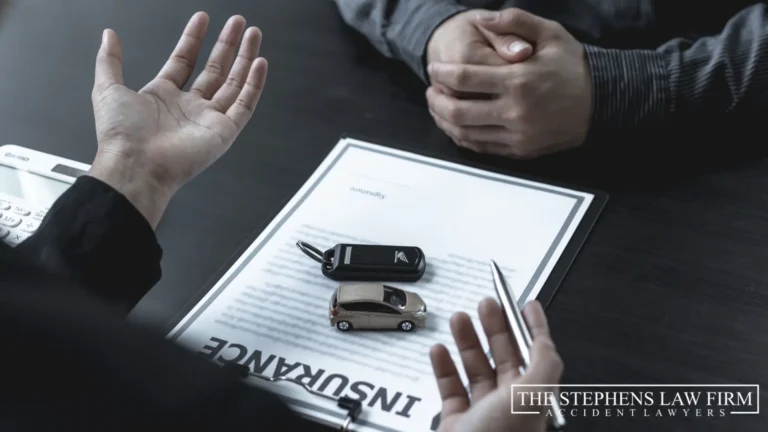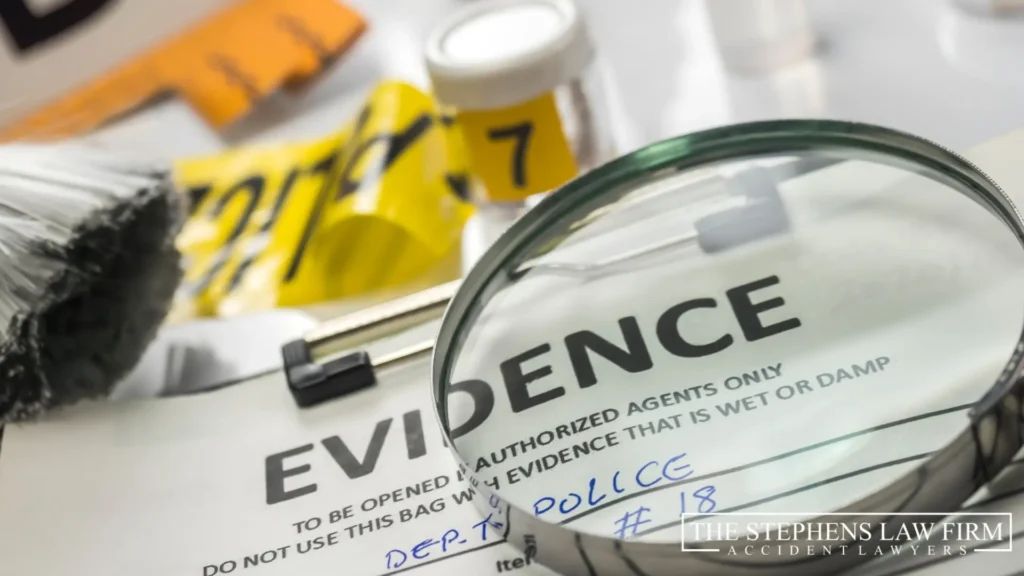Insurance adjusters ask for recorded statements to establish your version of events. They often reach out soon after the accident to gather details, determine fault, and assess the value of your claim. Everything you say becomes part of your file. No matter how courteous they seem, adjusters are not working in your best interest. Joe Stephens has over 30 years of experience helping victims with car accident claims, so you can focus on your recovery rather than dealing with insurance companies.
Never give a recorded statement to the insurance company without checking with an injury attorney first. Even simple answers can hurt your claim down the road.
KEY TAKEAWAYS
- Never give a recorded statement to an insurance company, especially the other driver’s insurer, without consulting an attorney first.
- Insurance adjusters are trained to minimize payouts and will use your words, tone, or even small inconsistencies against you to reduce or deny your claim.
- Even innocent phrases like “I’m fine” or “I didn’t see them” can be twisted to weaken your case or suggest partial fault.
- While your own insurer may require cooperation, you can delay or limit your statement until your lawyer is present, or provide a written version instead.
- An experienced Texas car accident attorney will handle all communications with insurers, protect your rights, and make sure nothing you say jeopardizes your compensation.
Why Do Insurance Companies Require Recorded Statements?
An insurance company might request a recorded statement to help with their investigation of your claim, and their goal is to pay you as little as possible.
Your insurance adjuster might seem like they’re trying to help you, and sound convincing that you need to give a statement, but you need to know that you are dealing with a person intent on securing only half of the truth. They are trained to manipulate your words, ask questions to imply you could have avoided the incident, and minimize the impact of your injuries.
The insurance adjuster can use your responses later to challenge the credibility of your claim or minimize your payout.

Insurance companies may try to place the blame on you, but we won’t let them. We count with the experience to help you get the care and compensation you need to move forward.
Should You Give a Recorded Statement to Your Insurance After a Car Accident?
The insurance company may require you to have a recorded statement before beginning the insurance claim process, but you should not give a statement until you have consulted with an experienced attorney or have your attorney with you.
Risks of Giving a Recorded Statement
Some risks are associated with speaking to insurance companies before speaking to legal counsel. Some reasons it may not be a good choice are:
- Inconsistencies or memory lapses: Even minor discrepancies, like time or wording, can be leveraged against you later.
- Unintentional admissions of fault: Phrases like “I didn’t see them soon enough” can be twisted.
- Downplaying injuries: Saying “I’m fine” early on may later undercut valid claims.
- Permanence of the statement: Once you’ve given a statement, you’re locked into that version, even if facts or symptoms evolve.
- Leading or word-trapping questions: Adjusters are trained to steer you into damaging admissions.
- Policy violation risk: If your insurer requires cooperation, refusing might risk your coverage, but providing it could still hurt your claim.
Your insurance adjuster’s main goal is to minimize the company’s risk and payout.
Are You Legally Required To Provide a Recorded Statement?
Your policy with your own insurance company usually requires you to cooperate, which can include giving a recorded statement. You can still protect yourself by waiting until you have spoken with a lawyer, having your attorney present, or making sure the adjuster only asks questions that are relevant and not misleading.
If the other driver’s insurance company asks for a recorded statement, you are under no legal obligation to provide one. You can decline because it is voluntary. If you work with Joe Stephens, he will set conditions that protect your rights and, if needed, guide you in providing a safer alternative such as a written statement or deposition.
What Legal Options Are Available After Reporting a Car Accident to Your Insurance Company?
You may be asked to give a recorded statement after notifying your insurance company about the car accident. It’s a good idea to consult with an attorney first or have one present. You don’t have to give a statement to a third-party insurance adjuster. If asked, simply decline politely and firmly.
If you must provide a statement, consider offering a written one instead. A written statement is often a safer option because you can choose your words carefully, review everything before submitting it, and avoid answering leading or misleading questions on the spot.
Before providing any statement, you should request written confirmation that the insurer accepts the fault. Pursuing a claim without an attorney can make success more difficult.
A good lawyer will stop you from giving a risky statement, explain the accident in context, and handle the details for you. When you work with Joe Stephens, he communicates with the adjuster on your behalf and makes sure the information is shared in a way that protects you from unfair tactics.
How The Stephens Law Firm Can Help With Your Insurance Claim
Joe Stephens has dedicated himself to injury victims in Texas for nearly four decades, gaining experience in taking on major insurers. His firm is double board-certified and tailored to provide his clients with aggressive but fair representation.
With Joe Stephens representing you, he will advise you on whether or not you should provide a recorded statement, handle all the insurer communications for you, and negotiate on your behalf. Working with an attorney can help protect your legal rights and maximize your compensation.
You don’t have to fight for compensation alone, especially if you’re trying to recover from injuries related to your accident. Joe Stephens will put your case first, with a personalized, professional approach to support you and your best interests.
Protect Your Rights After a Car Accident
After a car accident, you have enough on your plate. Let Joe and The Stephens Law Firm handle the legal details. During this time, you can rely on Joe Stephens’s experience, dedication, and personalized approach, no matter how many challenges come your way. Call 281-201-0035 or contact us for a free case evaluation. We work on a contingency fee basis, so you don’t pay us anything until we win.




